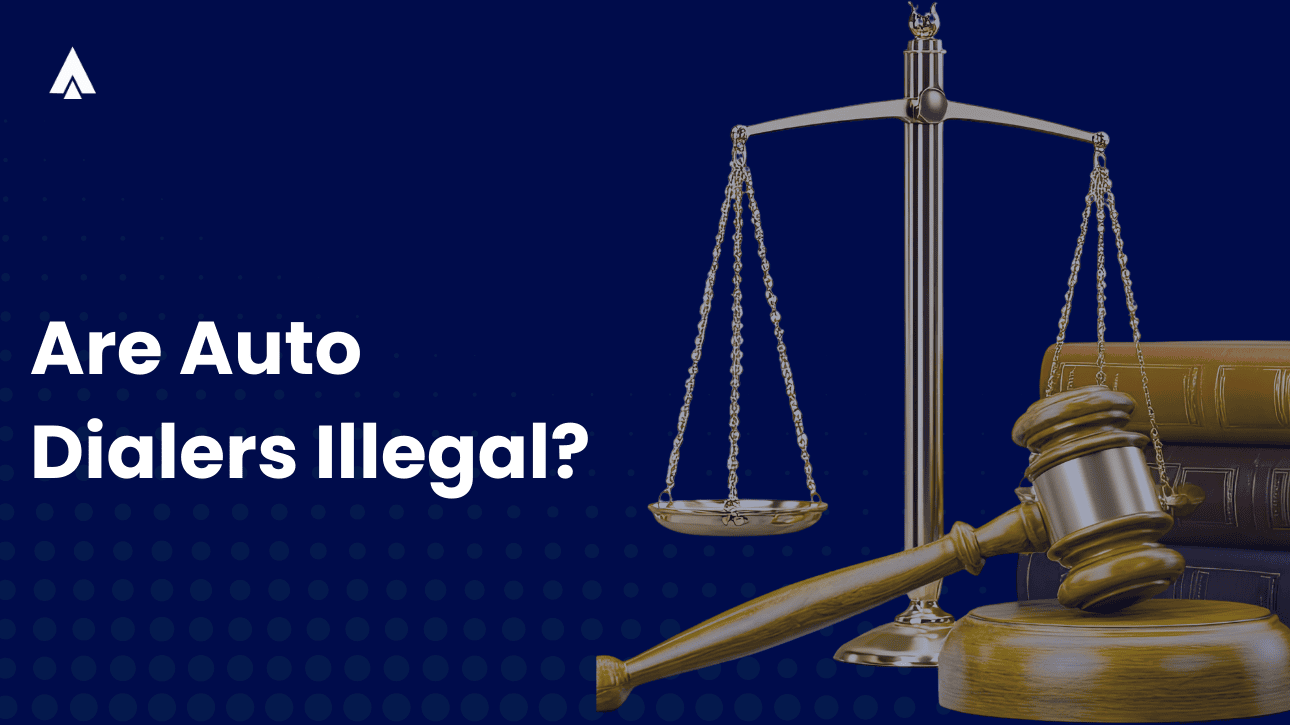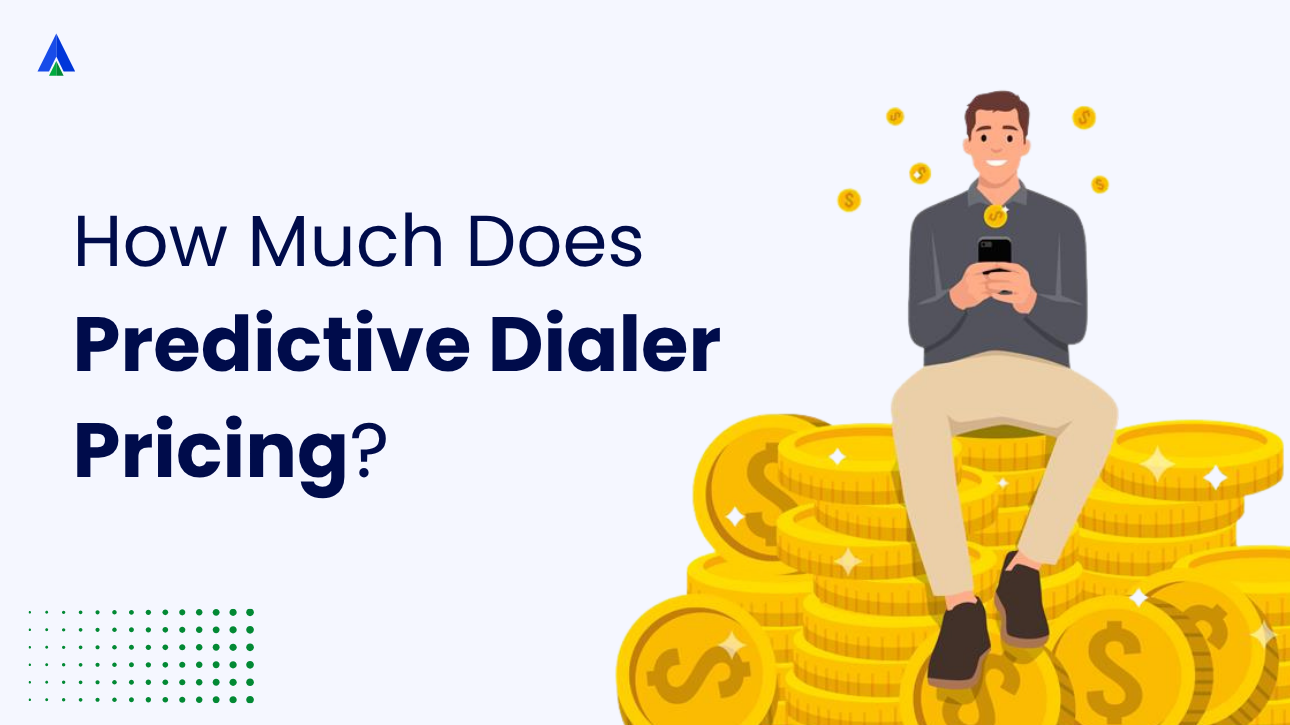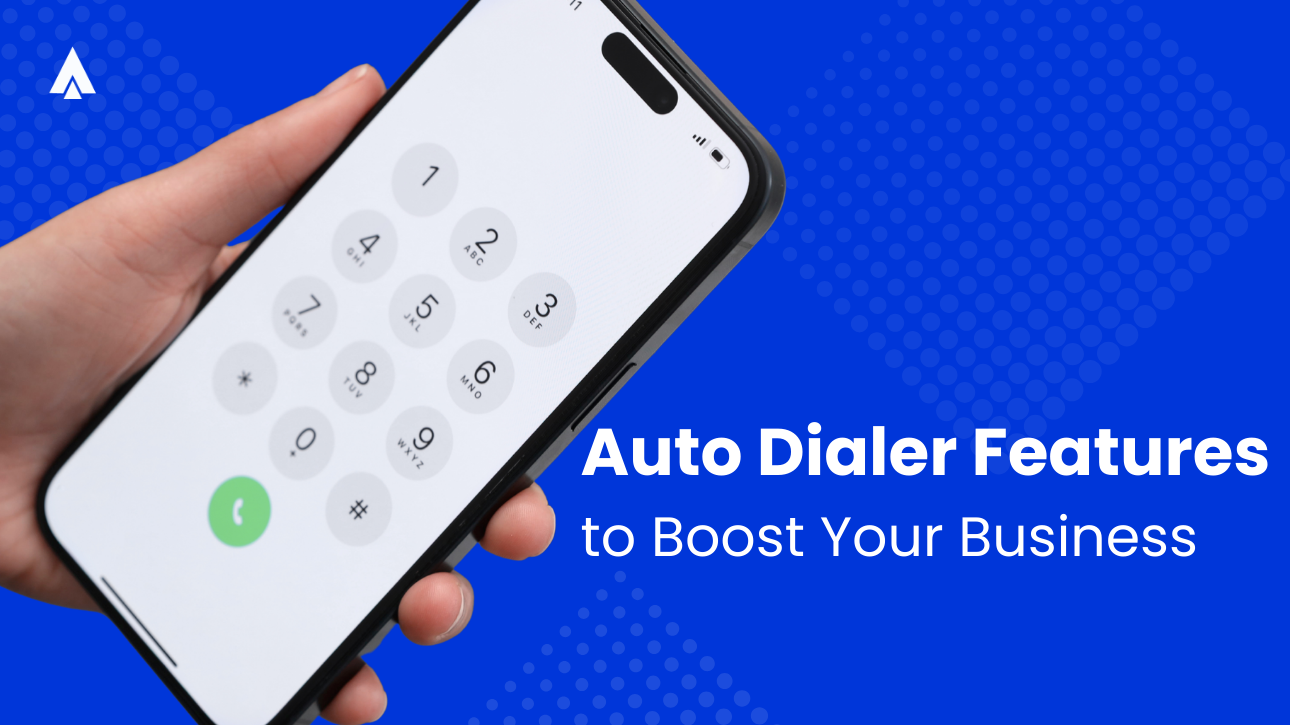In the initial years of the call center, auto dialers came into existence. They automatically dialed the customers’ numbers using a predefined list of contacts. Gradually, with the advancement of technology, a better dialer came into existence with more sophisticated features to deliver better connectivity efficiency.
With the advent of technology, contact center have switched to more advanced options to connect with their customers. Choosing the right software is an important decision. It can help businesses improve customer experience, reduce abandoned calls, and convert more leads.
Businesses are using automatic dialers to manage their customer database. Out of all the advanced dialers, auto and predictive dialers are the most prominent ones.
Let’s understand the key differences between auto dialer vs predictive dialer.
Why Does Your Business Need a Dialer?
Manually dialing new leads every day can be a mundane task for your team. Therefore, having the right outbound dialer ensures that companies establish better customer connections. Cloud-hosted dialers like auto and predictive dialers make the best use of customer data and connect with them efficiently.
The auto dialer effectively manages call center agents’ daily work pressure by distributing the connected calls among available reps.
While the predictive dialer solftware dials multiple contacts at once and ensures that agents achieve maximum customer connectivity.
Thus, advanced call center dialers enhance overall agent productivity. These dialers enable the call center reps to make a higher number of call connections and eventually lead to more opportunities for sales.
Let’s have a brief overview of auto dialer vs predictive dialer in brief.
Auto Dialer
An auto dialer—when chosen through a reliable auto dialer service provider—automatically dials customers’ numbers and connects a caller to a representative. Agents need to upload the list of leads and prospects and start the campaign after that. The auto dialer then starts dialing the numbers in sequence. The reps also get an option to drop a saved voicemail if the call goes unanswered.
An auto dialer is most suitable for a small support team or remote working team.
A cloud-based auto dialer software proves to be of great help when call centers fail to operate smoothly.
Advantages of Auto Dialer:
- Timesaving: Automatically dials numbers from a list, eliminating manual effort.
- Flexible modes: Offers preview, progressive, and power dialing depending on use case.
- CRM integration: Syncs with CRM tools for efficient lead and contact management.
- Compliance control: Features like DND scrubbing and time-zone restrictions help meet regulations.
- Improves consistency: Ensures every lead or customer is contacted per defined workflows.
Disadvantages of Auto Dialer:
- Limited intelligence: Basic auto dialers may not adapt in real time to agent behavior.
- Higher abandon rates (in some modes): Power dialers can drop calls if agents aren’t available.
- Requires setup: Needs clean contact lists, proper configuration, and CRM integration to work well.
- Less effective for high-volume teams: Not as optimized for large call volumes as predictive systems.
Predictive Dialer
A predictive dialer is an automatic dialer that works on statistical algorithms and machine learning. It can dial multiple contacts at once. The underlying feature of a predictive dialer that sets it apart from other dialers is that it starts dialing numbers before an agent ends the previous call. Thus, it ensures that no agent time is wasted, and reps can connect with maximum potential customers.
Also, the predictive dialer integrates with powerful business applications and web services related to CRM, ERP, Support Ticket System tools, etc. you use. This feature gives it an edge over other dialers.
Predictive Dialers make calls after zeroing in on the right customer and correspondingly, at the most favorable time. They can also help avoid answering machines. For this, they use a very complex algorithm. They immediately make contact between the customer and the available agents.
Advantages of Predictive Dialer:
- Maximizes call duration: Calls are placed based on agent availability predictions.
- High-volume efficiency: Ideal for large teams handling hundreds of calls per hour.
- AI-driven: Uses historical data to reduce wait time and increase live call connections.
- Improves KPIs: Higher connection and conversion rates compared to manual or basic dialing.
- Real-time optimization: Adjusts dialing pace automatically to match agent performance.
Disadvantages of Predictive Dialer:
- Complex setup: Needs careful calibration of call duration and pacing algorithms and data input.
- Risk of compliance issues: Over-aggressive dialing may result in dropped or abandoned calls if not configured properly.
- Not ideal for small teams: Works best with more agents to sustain predictive accuracy.
- Requires strong infrastructure: Needs stable internet, clean lists, and CRM integration for best results.
Predictive Dialer vs Auto Dialer: Which is the Best for Your Business?
Let’s take a look at the differences between predictive dialers vs auto dialers to find out which is the most suitable for your company.
| Point of Difference | Auto Dialer | Predictive Dialer |
| 1. Definition | A broad term for any system that automatically dials numbers from a contact list. | A smart type of auto dialer that uses algorithms to predict agent availability. |
| 2. Dialing Strategy | Dials one number at a time per available agent (in power/progressive modes). | Dials multiple numbers simultaneously before agents become available. |
| 3. Intelligence Level | Basic to moderate; depends on dialer type (preview, power, etc.). | High; uses machine learning and predictive analytics. |
| 4. Ideal Team Size | Works for small to medium-sized teams. | Best for large call centers with many agents. |
| 5. Setup Complexity | Simple to moderate setup. | Requires advanced configuration and tuning. |
| 6. Call Abandonment Risk | Lower in power/progressive modes. | Higher if not properly configured, due to multiple simultaneous calls. |
| 7. Use Case Suitability | Suitable for sales follow-ups, support callbacks, or small campaigns. | Ideal for high-volume outbound sales or collections campaigns. |
| 8. Agent Idle Time | Slightly higher due to reactive dialing. | Very low; proactive dialing keeps agents continuously engaged. |
| 9. Compliance Management | Easier to manage with manual pacing and built-in DNC checks. | Requires tighter control to avoid violating call abandonment or spam regulations. |
| 10. Cost & Resources | Typically lower cost; minimal resources needed. | Higher upfront investment; best value comes at scale. |
Let us see the ideal use cases for both of these dialers and analyze which one is best for your business.
The Ideal Use Cases: Predictive Dialer vs Auto Dialer
An auto dialer is best suited for-
- Small and medium-sized businesses for increasing sales and connecting with maximum customers.
- An auto dialer is a complete call center software for agents who are working remotely.
- Small teams of reps can provide personalized assistance to the prospects.
- CRM integration can help the agents to save all the necessary customer information for future reference.
A predictive dialer is best suited for-
- Big sales, support teams, and enterprises can use the predictive dialer to establish customer connections.
- If your sales teams need to carry out outbound campaigns with large volumes of call.
- Industries like insurance, real estate, banking, etc. have to make calls on a daily basis.
Predictive Dialers vs Auto Dialers: Which One to Use for Your Business?
So, in a nutshell, it can be said that if you are running a call center, then having a predictive dialer is one of the essential aspects because it enhances the overall productivity many folds. With the help of a predictive dialer, the precious time of the customers, as well as the call center, are given ample value. Your customers are looking for the best service in the least time invested. And predictive dialers stand ahead of auto dialers in this aspect.
Frequently Asked Questions
An auto dialer refers to any software that automatically dials numbers from a contact list, including preview, power, and predictive modes. A predictive dialer is a specific type of auto dialer that uses algorithms to call multiple numbers ahead of agent availability, maximizing talk time and efficiency.
Here is the difference between predictive dialer vs progressive dialer. A predictive dialer uses algorithms to dial multiple numbers simultaneously and connect only answered calls to available agents. It anticipates agent availability to boost efficiency. A progressive dialer, on the other hand, places one call per agent only after the previous call ends, ensuring more controlled and compliant outreach.
A power dialer is a type of auto dialer that calls numbers one by one as agents become available, skipping unanswered or busy lines. An auto dialer is a broader term that includes power, preview, progressive, and predictive modes, each designed for different use cases and outreach strategies.
Yes, most modern predictive and auto dialers offer CRM integration. With Acefone, for instance, you can connect platforms like Salesforce or Zoho to sync contacts, view call history, trigger workflows, and log data automatically, ensuring seamless communication, smarter lead tracking, and better customer engagement across all dialer modes.
Using auto dialers is legal, but it must comply with regional regulations like the TCPA (US), TRAI (India), or GDPR (EU). Consent, opt-out options, and call timing restrictions are key.
The cost of auto dialers vary according to providers. With Acefone auto dialer pricing, you get plans starting at $19.99.
















